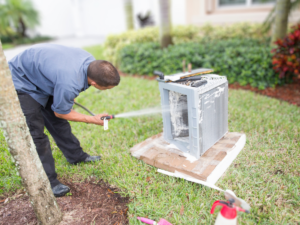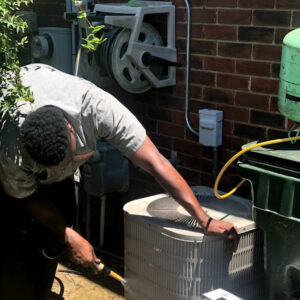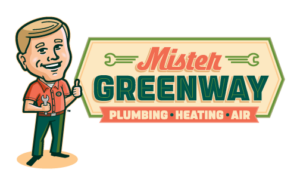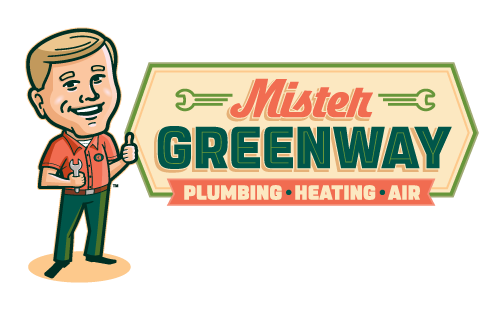 When it comes to keeping your air conditioning unit running smoothly, AC coil cleanliness is something you don’t want to ignore. Those air conditioner coils—especially the evaporator and condenser coils—are central to cooling efficiency and energy savings.
When it comes to keeping your air conditioning unit running smoothly, AC coil cleanliness is something you don’t want to ignore. Those air conditioner coils—especially the evaporator and condenser coils—are central to cooling efficiency and energy savings.
Dirt buildup on the coils makes the AC work harder, shortening its lifespan and putting a dent in your wallet. If you have been frustrated with weak cooling, high bills, or frequent repairs, dirty coils might be the problem. Let’s explore why you should clean them, how often to do it, and what signs might mean it’s time for a good scrub.
Key Takeaways
- AC coils should generally be cleaned once a year to maintain system efficiency and longevity.
- More frequent cleaning may be necessary depending on location, environment, and usage.
- Clean coils help save on energy bills and improve overall cooling effectiveness.
- There are DIY options, but professionals can handle cleaning without risk of coil damage.
Understanding AC Coils
Air conditioning systems rely heavily on two types of coils: evaporator coils (inside) and condenser coils (outside). The evaporator coil absorbs heat from indoor air, while the condenser coil expels that heat outside.
These coils must be clean to work efficiently. Any dirt or dust on them can interfere with heat exchange, which reduces cooling efficiency.
Plus, dirty coils make the AC unit work harder, which increases wear and tear and shortens its lifespan. Regular cleaning is the ticket to smooth cooling, lower energy bills, and longer-lasting AC equipment.
How Often Should AC Coils Be Cleaned?
The rule of thumb is simple: aim to clean AC coils about once a year. But if you’re in a high-dust area, have pets, or your AC runs constantly through hot summers, you might need more frequent cleaning. Let’s look at a few specific factors that can impact how often your coils need attention.
Location & Environment
If you live in a dusty area or near construction sites or factories, that dust finds its way to your AC unit. Similarly, pollen-heavy seasons can add extra debris to your coils. Homes in these areas may need to consider biannual cleaning to keep things running smoothly.
High Usage
If your AC is running non-stop during the summer, it’s natural for debris to collect on the coils faster. High usage means high maintenance needs, so you might want to schedule a coil check every six months if you’re constantly cranking the AC.
Home Environment
Pet owners pay attention, pet hair and dander love to make themselves at home on AC coils. Likewise, indoor air quality can play a role, especially if your home is prone to dust buildup or smoke. In these cases, consider cleaning the coils every six months.
Listen to the Pros
A professional technician can evaluate your system and tell you the best cleaning schedule based on your specific AC unit and living environment. They can spot coil buildup faster than you might and recommend the right approach for you.
Signs Your AC Coils Need Cleaning
 Wondering if it’s time to clean the coils? Keep an eye out for these signs:
Wondering if it’s time to clean the coils? Keep an eye out for these signs:
Decrease in Cooling Efficiency
If your AC isn’t cooling as well as it used to, dirty coils could be the culprit. Dirt buildup reduces the coil’s ability to transfer heat, making your AC less effective.
Increased Energy Bills
When coils are dirty, the AC works harder to cool your home, which results in higher energy bills. If you notice a sudden spike in costs, the coils might need cleaning.
Frequent Cycling or Short Cycling
Dirty coils can interfere with thermostat readings, causing the system to turn on and off frequently. This cycling strains the system and reduces efficiency.
Strange Noises or Odors
If you’re hearing odd noises or catching a musty smell, dirt and debris on the coils could be clogging airflow. When airflow is blocked, you might hear the AC straining or catch whiffs of dust.
Visible Dirt or Buildup
Sometimes, the signs are right in front of you. If you see dirt and debris on the outside coils, it’s time to clean them up.
How to Keep AC Coils Clean
Want to keep your AC running smoothly between professional cleanings? Here are a few maintenance tips that help prevent debris from building up on the coils.
Regular Filter Changes
Changing your AC filters regularly is a straightforward way to keep debris from reaching the coils. A clean filter catches dust and debris before it gets to the evaporator coil, keeping everything running cleaner and cooler.
Outdoor Unit Care
The outdoor unit often sits in spots where leaves, dirt, and other debris can easily accumulate. Keep the area around it clear—no leaves, no grass clippings, no debris. A clean unit means fewer headaches later on.
Routine Maintenance
A simple annual or biannual check-up can go a long way. Technicians can check the coils, replace filters, and inspect for any potential problems, making sure your AC is ready to handle the season.
Should You DIY AC Coil Cleaning?
There are DIY methods to clean your coils, but they come with some risks. A gentle vacuum or rinse can work, but you’ll want to be careful not to bend or damage the coils. Most hardware stores carry coil cleaner sprays that you can use on outdoor units, but go easy.
Professionals use special equipment to avoid harming delicate parts, so if you’re not confident in your DIY skills, it might be best to call in a pro. While hiring a professional can mean a higher upfront cost, it could save you from costly coil repairs down the road.
Trust Mister Greenway Nashville for AC Maintenance
 If you’re in Nashville and need coil cleaning, look no further than Mister Greenway. With professional coil cleaning and a range of AC services, Mister Greenway knows how to keep Nashville homes cool and comfortable.
If you’re in Nashville and need coil cleaning, look no further than Mister Greenway. With professional coil cleaning and a range of AC services, Mister Greenway knows how to keep Nashville homes cool and comfortable.
Whether you need maintenance, repairs, or a brand-new installation, they’ve got your back—and they’ll scramble a trained tech on their way in under 30 minutes!
FAQs
When it comes to keeping AC coils clean, there are always a few common questions. Here’s a quick FAQ to help answer your burning questions.
How often should AC coils be professionally cleaned?
Once a year works for most households, though homes in dusty or high-pollen areas may need more frequent cleaning.
Can I clean AC coils myself?
Yes, but it’s not always recommended. A gentle vacuum or water rinse can help, but professionals have tools and techniques that reduce the risk of damage.
What happens if I don’t clean my AC coils?
Dirty coils lead to reduced cooling efficiency, higher energy bills, and could ultimately shorten your AC’s lifespan.
Does cleaning AC coils help with allergies?
Yes, especially if you live in a high-dust or pollen-heavy area. Clean coils improve air quality, reducing allergens that circulate indoors.
Will dirty coils cause my AC to leak water?
Yes. When dirt blocks airflow, it can cause the evaporator coil to freeze up. Once it thaws, it may cause water leakage.
What are the benefits of professional AC coil cleaning?
Professionals can clean coils thoroughly, improving cooling efficiency and preventing coil damage. It’s also faster and safer than DIY cleaning.
Final Thoughts
AC coil cleaning isn’t just a one-and-done thing. Regular maintenance keeps your AC system running efficiently and helps avoid unexpected repair costs. Signs like poor cooling, higher bills, and odd noises are clear indicators it might be time for a cleaning. ‘
If you’re looking to extend the life of your AC and enjoy lower energy bills, consider regular coil maintenance, and don’t hesitate to reach out to a trusted professional like Mister Greenway in Nashville, TN. They’ll handle the heavy lifting, so you can keep your cool.
